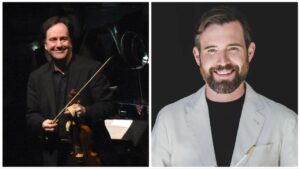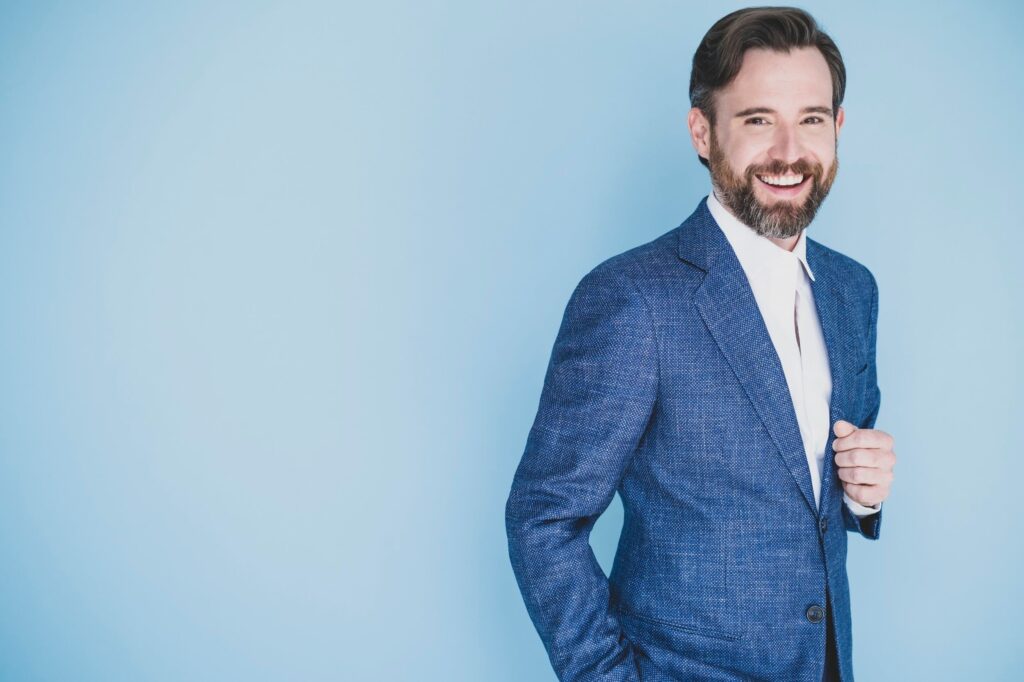
Q & A: Opera Lafayette’s Ryan Brown & Patrick Quigley on Leading Company & Making the Transition to a New Future
By David SalazarOperawire: How hard was it to decide to step away after 30 years? What factors helped ease the decision for you?
OW: Reflecting on the journey of founding this company, what achievements or moments are standouts? What are the highlights of your career at the head of Opera Lafayette? Favorite productions?
OW: Who are the people that you feel have been most essential to the development of the company throughout your tenure? Who are the people that most impacted you personally during this time and from whom you learned the most?
OW: What would you say are the greatest challenges of running an arts organization and how has that changed over the course of your career?
OW: What do you hope that the future brings for the company? What aspects of bringing Mr. Quigley onboard excite you the most?
OW: In your mind, how do you envision the next two years playing out as you make way for Mr. Quigley?
OW: What’s next for you after Opera Lafayette? What excites you most about your next chapter?

(Credit: Dario Acosta)
OW: Congratulations on the new post. First off, how does it feel to take over Opera Lafayette? What does this organization mean to you?
Patrick Quigley: it is an incredible honor to follow Opera Lafayette’s founder, Ryan Brown, as Artistic Director. Ryan exemplifies what it means to be a leader and founder of a historical performance organization: adventurous, savvy, scholarly, welcoming, and inspiring; and Opera Lafayette reflects those values.
OW: Why was taking over Opera Lafayette the right move for you at this point in your career?
PQ: As an artist, I have always been concerned with how our art-making can bring people closer together. Opera Lafayette, an organization that simultaneously explores human history and emotion, is uniquely positioned to help our community process the separation and longing that we went through together during the pandemic. By examining the human experience through a historical lens, we can realize that humanity has experienced these emotions and events and survived. In communicating that emotional journey through music, we afford our community a sensory experience that reinforces the deep connection that we have to those who came before us.
OW: Who are some composers or are there are any specific works that you hope to spotlight during your tenure?
PQ: In addition to those composers that have defined my career until this point (Monteverdi, Purcell, Handel, Mozart, and Haydn), I would like Opera Lafayette to explore those 19th-century Americans who wrote in the tradition of Western European art music, but gave it a unique new world flavor. Many of these composers are natives of my hometown, New Orleans, including Edmond Dede, Louis Moreau Gottschalk, and Ernest Guiraud.
OW: What are some of your goals, both short term and long term, for the company? How would you like to transform Opera Lafayette? What are some challenges that you anticipate in your new position?
PQ: As one of the oldest period-instrument opera companies in North America, Opera Lafayette is in the unique position to cultivate musicians and repertoire for an American public. Since Opera Lafayette’s founding nearly thirty years ago, the level and quality of HIP (Historically Informed Performance) singing and playing in the United States has exploded. I believe it is Opera Lafayette’s responsibility to feature these domestically trained performers in productions that speak to an American audience.
OW: What are some things you learned from leading Seraphic Fire that you think will be essential to leading Opera Lafayette?
PQ: With Seraphic Fire, I’ve learned that all art (like politics) is local, and that every musical performance should be, either implicitly or explicitly, an educational experience. Through collaborations, outreach, youth education programs, and concerts with local flavor, I hope that Opera Lafayette can become an even more indispensable artistic institution for the communities that we serve.
OW: What is your opera origin story? What was your first opera experience? When did you decide you wanted to pursue a career in classical music and what are some of the greatest challenges that you have overcome that shaped your career?
PQ: I, like many middle class Gen X youth, had my first experiences with opera through television and movies. As a piano-playing pre-teen obsessed with the screen adaptations of Broadway musicals, I had my first formative experience with opera when I saw a PBS broadcast of the 1954 “Carmen Jones,” Oscar Hammerstein’s re-setting of George Bizet’s masterpiece in World War II-era North Carolina. I mentioned this amazing production to my piano teacher, who informed me that Carmen Jones was based on a 19th century opera, which led to a years-long love affair with the music of Bizet. Similarly, movies like “Amadeus” introduced me to the operas of Mozart; “Dangerous Liaisons” to the music of Gluck. Attending production of “L’incoronazione di Poppea” while studying historical music at the University of Notre Dame began a lifetime obsession with the music of Claudio Monteverdi, and I conducted my first opera, Henry Purcell’s “Dido and Aeneas,” (starring classmate mezzo-soprano Leah Wool) while at the Yale School of Music.
It is hard to remember a time when I did not have a career in classical music. I began accompanying school and church choirs when I was in 5th grade. My piano teachers and choir directors, realizing my enthusiasm, began to pass paid substitute accompanying gigs to me soon after. At fourteen years old, I was hired as the Organist and Choirmaster at a small Presbyterian church in New Orleans East (since destroyed by Hurricane Katrina) that had a choir made up of professional singers who volunteered their time in the small-but-mighty choir. Those remarkable musicians taught me what it meant to be “professional,” and I carry the lessons I learned from them in every rehearsal and performance.
The most challenging moment in my nascent career was leaving the comfort of a salaried church position in 2005 to take a risk in pursuing independent music making full time with Seraphic Fire, then beginning its 4th season. Going from a position that had a consistent paycheck and healthcare to one that didn’t even have a bank account was eye-opening and, at many times during those first years, terrifying. Fortunately, Seraphic Fire—through the dedication and commitment of hundreds of volunteers, musicians, patrons, and audience members—has now completed two decades of presenting music to the South Florida community, and I have earned an honorary doctoral degree in Real Life Music Making. The challenge of making music without a safety net was one of the hardest that I’ve encountered, but unquestionably the most valuable.


